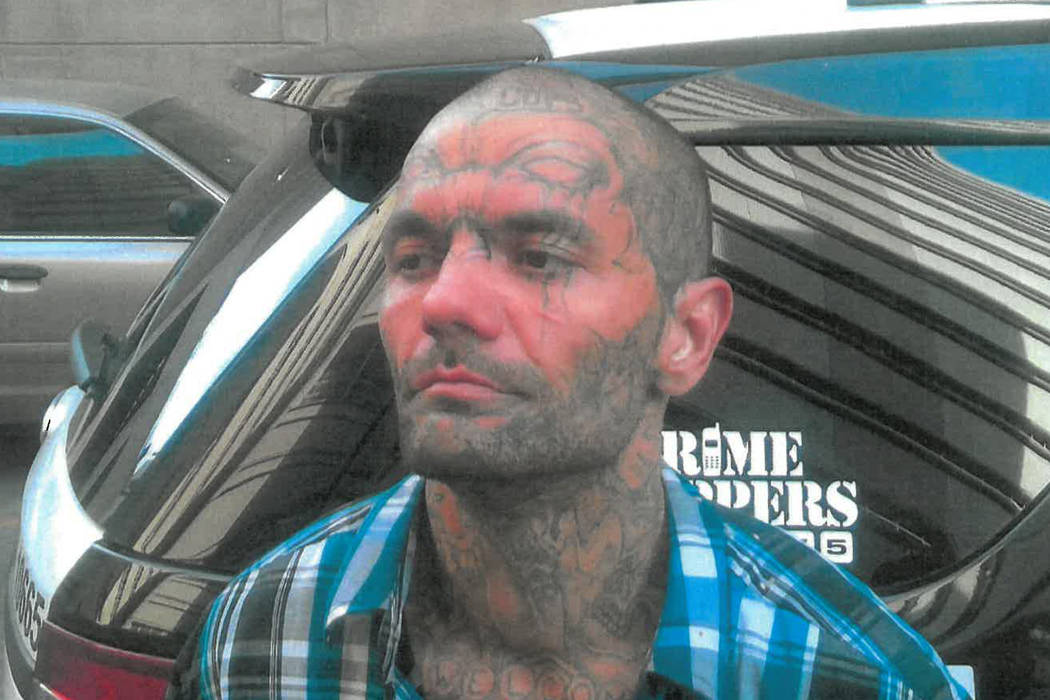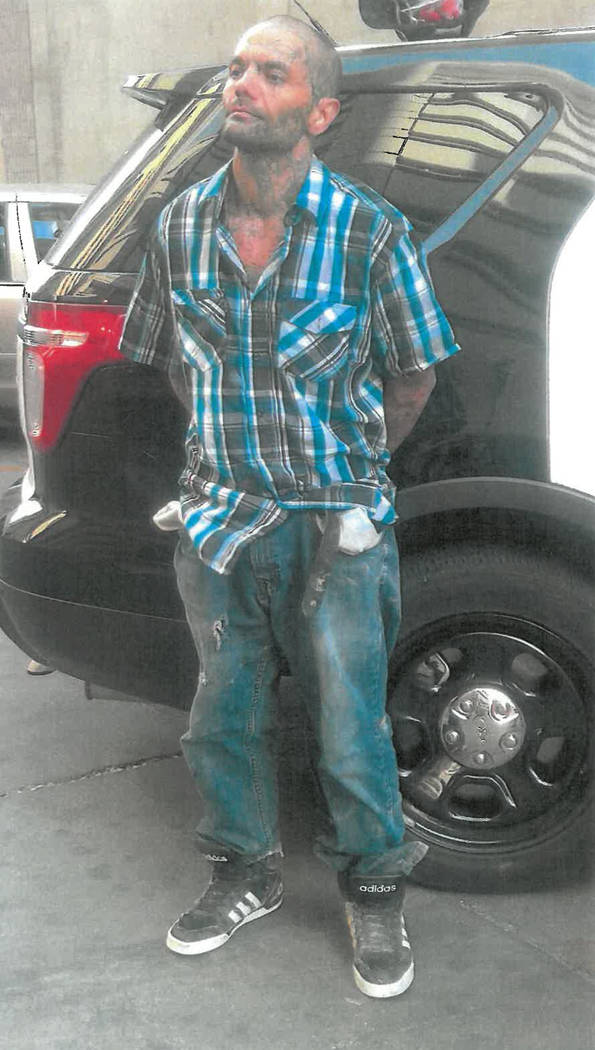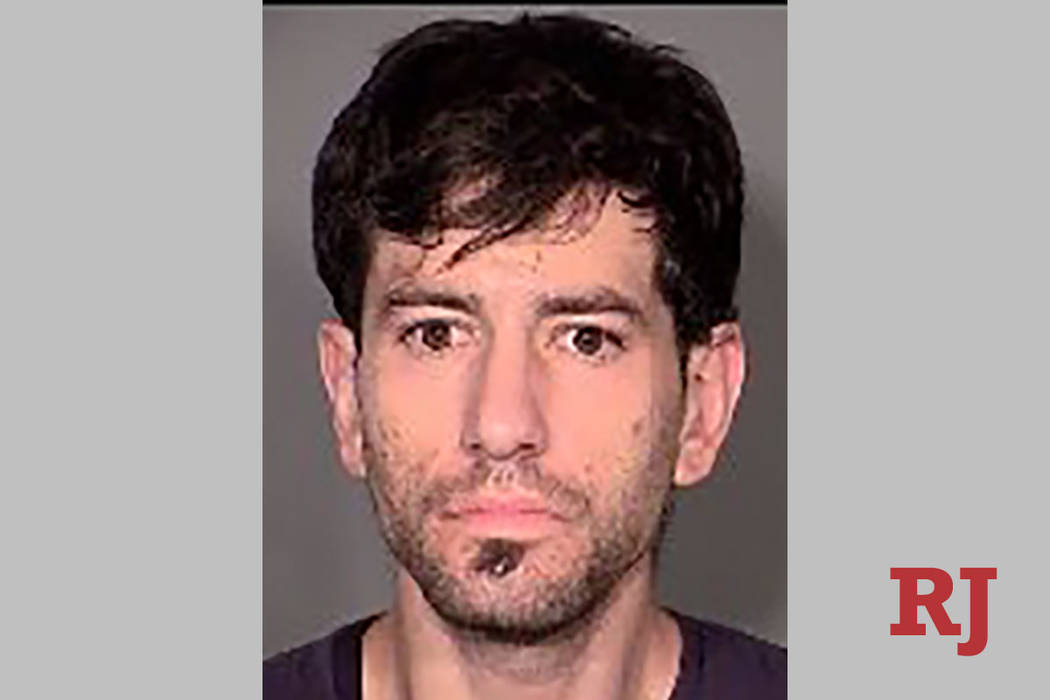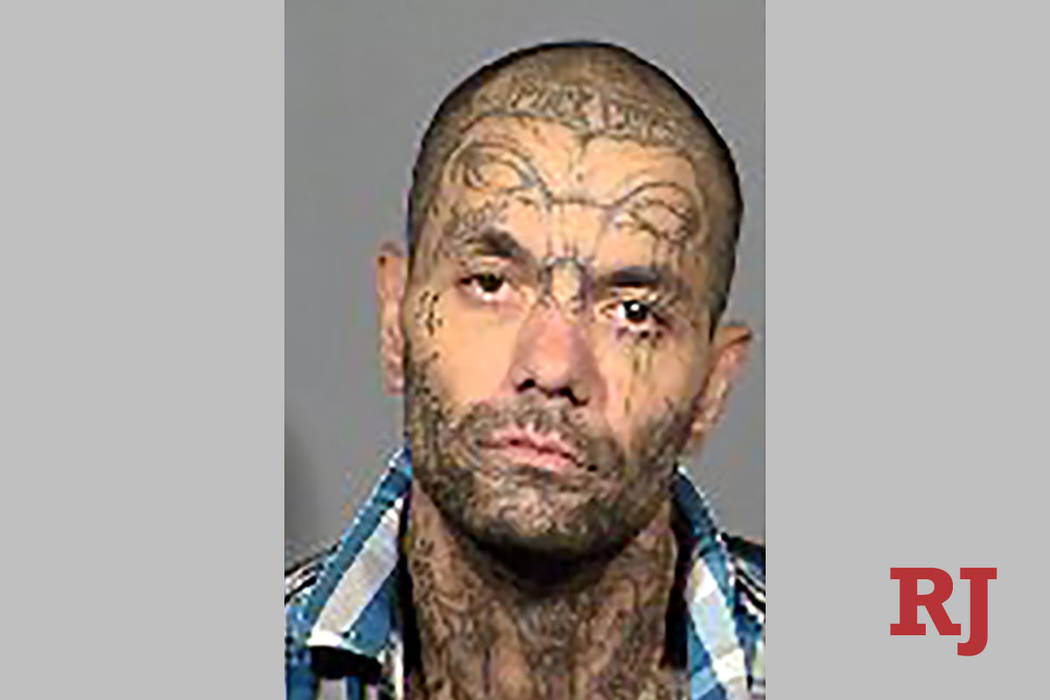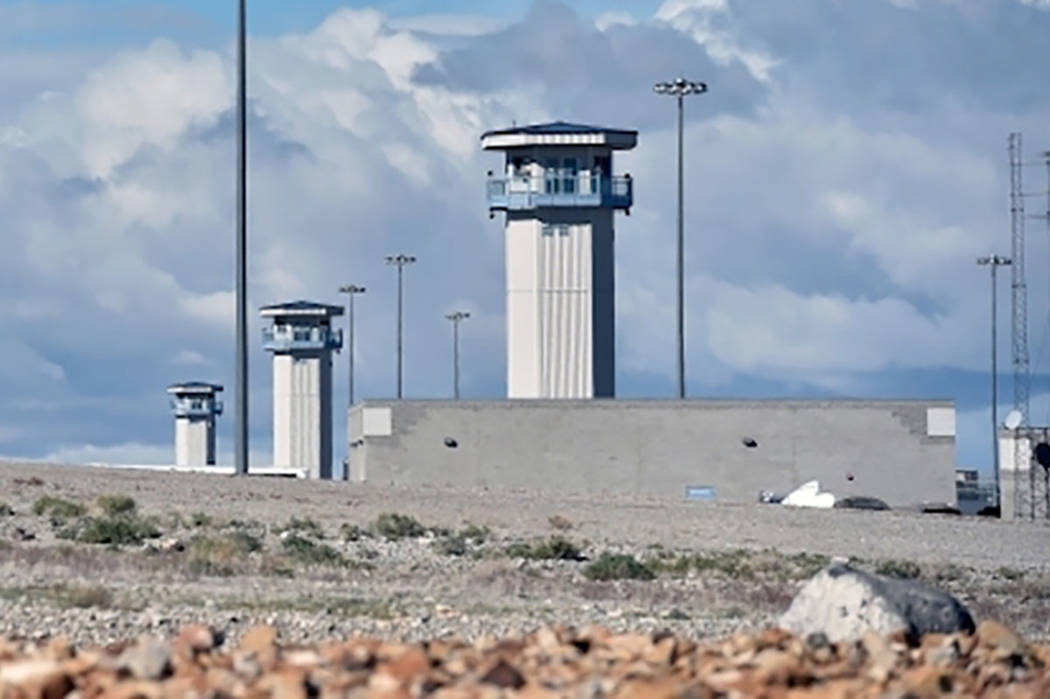Suspect in Nevada prison killing went free before facing charges
Two years after Anthony Williams was suspected of helping a fellow inmate stab another man to death in prison, he was freed from High Desert State Prison without facing criminal charges in the killing.
Within two months of his release in May 2018, the reputed member of the white supremacist Aryan Warriors led a crime spree of armed robberies that stretched from Laughlin to northwest Las Vegas.
But not until last week — more than half a year after Williams, who goes by the nickname “Mugsy” and has a head and face cloaked with tattoos, had been tried and convicted in the robberies — did prosecutors publicly link him and another man to the slaying of 26-year-old Andrew Thurgood.
“This is a guy that definitely never should have been out of prison to commit robberies and other crimes of violence,” said Robert Langford, a longtime criminal defense attorney and former prosecutor. “That’s just insane. I can’t think of any good reason that you would punt on that kind of prosecution.”
Authorities won’t say why it took more than three years to charge Williams, a 36-year-old with felony convictions dating back to 2001, and Tarik “Torque” Goicoechea in the February 2016 death of Thurgood, who was serving time at the prison for attempted possession of a stolen vehicle.
Murder charges against Williams and Goicoechea were swept up in a 152-count racketeering indictment against 21 others tied to the prison gang. No other crimes listed in the indictment unsealed last week occurred before January.
Killing leads to lawsuit
A federal lawsuit filed last year by Thurgood’s family states that he was stabbed 52 times inside a locked cell with Williams and Goicoechea.
Afterward, the killers pressed a call button and told a corrections officer there was a “man down,” according to the lawsuit. An officer opened the cell door electronically before Williams and Goicoechea dragged Thurgood’s body onto the tier “and gave each other a ‘high five,’” the lawsuit alleges, adding that officers “intentionally delayed in responding to Andrew’s condition and allowed Andrew to bleed out on the floor.”
Langford said the attorney general’s office, which has jurisdiction over the state-run facility, would typically investigate killings behind bars and could opt to refer its findings to a local district attorney’s office for prosecution.
In an email correspondence with the Las Vegas Review-Journal, a spokeswoman for the attorney general’s office declined to specify when the case against Williams and Goicoechea was referred to the Clark County district attorney’s office.
“The district attorney’s office approached our office about this case, as they wanted to pursue the matter as a part of a larger racketeering case,” spokeswoman Monica Moazez wrote. “As both of our offices maintain concurrent jurisdiction over prison cases and in order not to impede their prosecution of a larger case, our office cooperated with this request and offered up all information we had collected at that time.”
District Attorney Steve Wolfson did not respond to requests for comment.
Williams had spent time in and out of Nevada prison for various felonies through the course of nearly a decade before his dash of freedom last year.
In one robbery tied to Williams, a 70-year-old room service worker at Harrah’s Casino in Laughlin was leaving work late one night in the middle of July 2018. At her car, a man rushed up behind her, shoved her to the garage floor, grabbed her purse and took off.
Five days later, Williams acted as a lookout as another man robbed a northwest valley bar with an assault rifle, stealing a patron’s wallet and keys. Williams fled the scene in a stolen SUV.
Judge imposes life sentence
Williams was convicted after fleeing from the patron’s vehicle and being caught with the casino worker’s wallet, Social Security card and a pocket full of counterfeit bills. At his sentencing in May, 10 months after he was released from High Desert, Chief Deputy District Attorney Elizabeth Mercer said he had been “placed in isolation for several months” in connection with Thurgood’s death.
After his conviction, the prosecutor added, Williams was caught with a list of the names and personal identifying information of the robbery victims and witnesses.
“To me that is absolutely appalling,” Mercer told the judge. “It’s offensive that he would try to retaliate against the people that he victimized.”
District Judge William Kephart ordered Williams to serve a life term behind bars without the possibility of parole. He is appealing his sentence.
Langford suggested that the threat of civil litigation could have played a role in a decision to hold back on criminal charges in Thurgood’s death.
“Absent some other good reason, that just to me sounds like they were trying to cover up and minimize the state’s exposure to civil liability,” Langford said, “which is pretty reprehensible.”
Contact David Ferrara at dferrara@reviewjournal.com or 702-380-1039. Follow @randompoker on Twitter.



